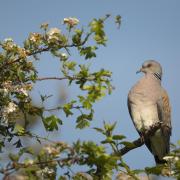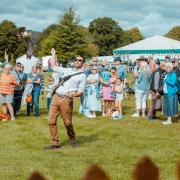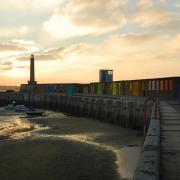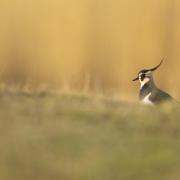How it’s done in Whistable, Sevenoaks and Folkestone
Whitstable
The idea of having a literary festival in Whitstable has been raised many times and Victoria Falconer says she was “the enthusiastic, or stupid, person who said, ‘I’m going to make this happen’.”
Her vision for WhitLit came from a conversation with her parents about the author and playwright Somerset Maugham and his connections to Whitstable.
“The idea is that I want people to rediscover Maugham and for Whitstable to actually celebrate its relationship with him,” she explains.
Despite being the biggest-selling novelist of the 1930s and a war spy, Maugham’s reputation suffered after his death.
Victoria has gathered together an exclusive panel of experts to help set the record straight and show the town why it should be proud of its literary heritage.
She also teamed up with her ‘co-conspirator’, memoirist Marnie Summerfield-Smith, as well as the Horsebridge Centre and Harbour Books for the festival. She thinks Whitstable’s thriving writing and reading community will provide the key to WhitLit’s success.
All the events on offer have been tailored to local authors and their interests to provide something slightly different.
“We want the audience to feel as if they’re overhearing a dinner party conversation, so they will come away feeling they have learnt something more than the title of a new book,” she says.
The local community has also played a huge part in getting the festival off the ground. Some seed funding has been obtained from Canterbury City Council and a Canterbury Council grant but, as Victoria reveals: “It’s all being run on a shoestring, purely by volunteers and all the authors and hosts are appearing for free. Everyone is donating their time, which is amazing.”
With the catchy strapline ‘Celebrating Independent Spirit’, the main aim of the debut festival in May is “to engage with the local community through a good event that’s perhaps a little different.”
Victoria also hopes that people will appreciate their efforts and says: “It’s our first year so it’s not going to be perfect, but at least we’re making a start. We’re trying, and I want people to enjoy it.”
Sevenoaks
John and Penny Morrison took on the publicity and vice-chairman roles
of the Sevenoaks Literary Celebration Committee several years ago and are well aware of how much effort it takes to make a festival work.
Branching out from the Sevenoaks Summer Festival in 2002, the festival draws more than 1,200 people each year, in addition to their school events.
It also attracts many well-known and inspiring figures such as Hilary Mantel, Sophie Hannah, Lionel Shriver, Sir Sherard Cowper-Coles and Patrick Gale to the area.
“The festival’s success is down to really detailed planning rather than leaving things to the last minute and sharing out among the committee exactly who is doing what for each event,” says John.
When it comes to the booking of speakers Penny adds that the direct approach seems to be the most effective and sometimes, as in the case of booking Carol Ann Duffy last year, a personal meeting can work wonders
“She was talking in a little bookshop in London one night when we were on the way to the theatre so I nipped in to have a quick chat. She said ‘oh, email me’ and I thought it was unlikely to come to anything but I did and she came back and said she’d do it, so you never know.”
With their twelfth festival coming up the committee, who work in partnership with Sevenoaks Book Shop, know that for them a two-week long celebration with one daily event seems to work best.
They have deliberately stayed small in order to offer quality events with ‘real authors and real books’ and the most popular are ‘big names’ and ‘anything with food attached’.
Their literary lunch and themed tea events sell out rapidly and this year’s tea will have a royal theme, due to an appearance by Susanne Groom, who is an expert on royal dining.
And with Lucy Hughes-Hallett, who won the Costa biography prize with her book The Pike, Robert Sackville-West and ‘the bee man’ Dave Goulson talking about his popular Sting in the Tale book, this year’s programme is bound to be just as popular as ever.
Folkestone
Folkestone Book Festival is another popular literary event whose roots stretch back even further, some say 50 years, although it has been through several reincarnations.
Now under the umbrella of the Creative Foundation, the festival forms part of the town’s regeneration programme and its Spoken Word Curator, Geraldine D’Amico, is justifiably proud of the part it plays.
“When the festival was done by SAGA, before the Quarterhouse was built five years ago, it was taking place in West Folkestone at The Grand,” she says.
“The novelty, once the Quarterhouse was built, was to bring the festival to the part of town which is close to the harbour and fairly deprived and run down.
“The area is now quite transformed by the Creative Quarter, so in a sense you can see how important it is to the regeneration programme.”
This is Geraldine’s third year in charge of the literary programme and she says she likes to get “as an eclectic mix as possible.”
She compares approaching an author to ‘writing to Santa’ and says that the most popular speakers last year were Kate Adie, Anthony Beaver, Lionel Shriver and Doug Scott, the mountaineer.
Of the latter she admits: “I wasn’t quite sure how he would go down in Folkestone. I thought mmm…a seaside town and mountaineering, how is that going to work, but it was amazing. He was a force of nature and the audience loved him.”
Her personal favourite, as a French woman, was the bilingual workshop where 50 children came from Boulogne to spend the day with 50 local school children.
“We had a children’s book translator who did a workshop on a book she had recently translated. It was amazing, really fantastic,” she beams.
With more than 4,000 tickets sold last year, Geraldine now plans to build on the festival’s reputation.
As she says: “A book festival is the opposite of staying at home and watching TV. You can watch the most fantastic programme but you are totally passive.
“Coming to a book festival gives you a chance to interact, to meet someone who is quite exceptional. Someone who has given years of his or her life to write a book to give you pleasure, to give you ideas and we are giving people the chance to come and talk to these people, not just to see and listen but to meet them, discuss and ask questions.”



























